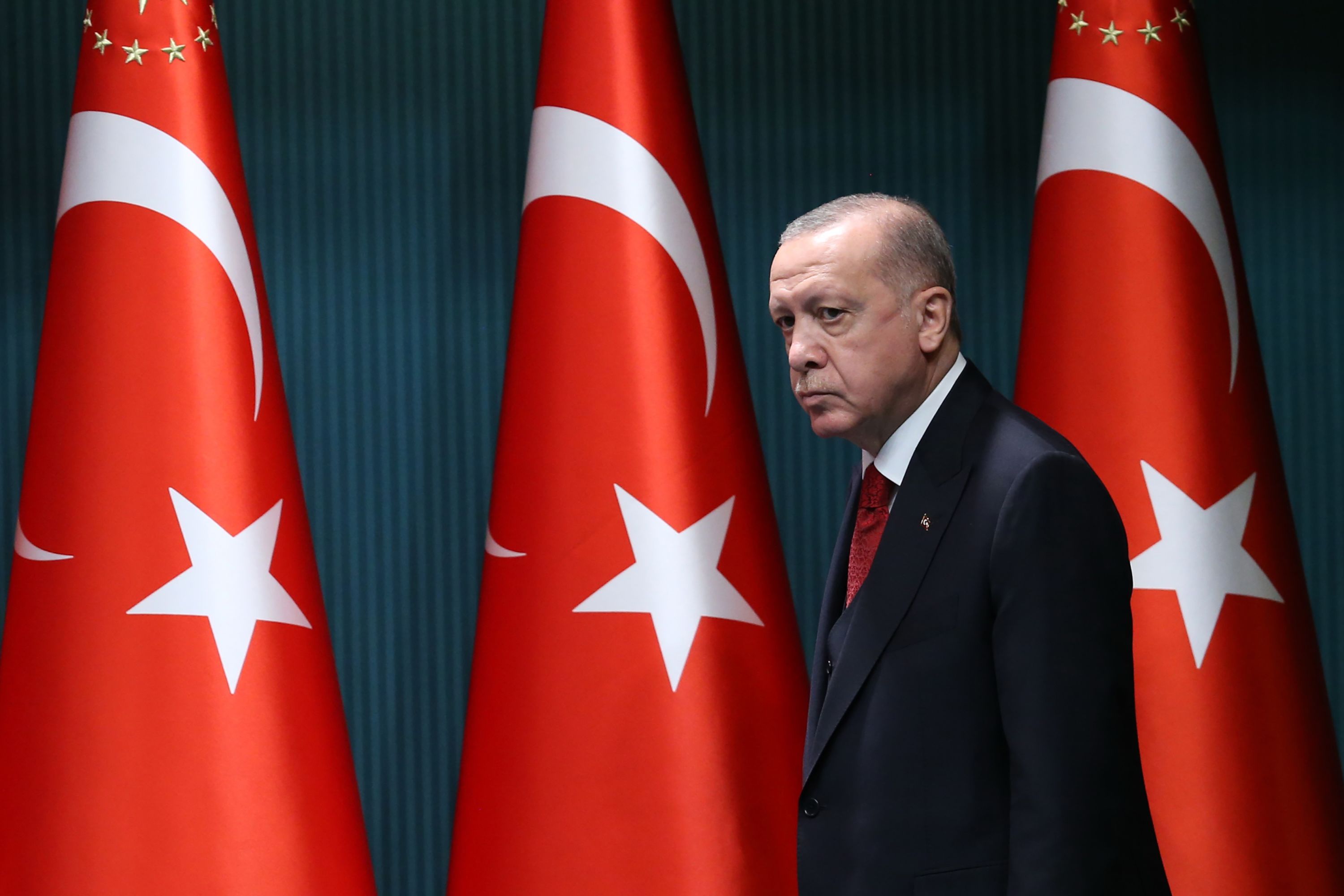Including Israeli Genocide in Gaza: What Are the Secrets of Turkiye’s ‘Red Book?’

“Strangely, no one has ever actually seen this book—nor met anyone who has.”
After much anticipation, Turkiye revised its National Security Strategy document, commonly known as the Red Book, during a National Security Council (MGK) meeting chaired by President Recep Tayyip Erdogan.
Following the meeting at the Presidential Complex on January 22, 2025, the council released a statement through the Turkiye Directorate of Communications social media platforms.
According to the statement, the National Security Policy Document (MGSB) has been updated, a process typically carried out every five years or sooner if deemed necessary.
The latest revision assesses recent and anticipated developments in Turkiye, the region, and the world, and was formally approved by the council.
The statement also confirmed that the previous version, “MGSB-2020,” has been replaced, with “MGSB-2025” now in effect.
It further noted: “Political, military, economic, and social developments from 2024 were evaluated in terms of their impact on our national security, while potential challenges for 2025 were discussed, along with the necessary measures and strategies to address them.”

Red Book Origin
The document outlines the state’s perception of internal and external threats and is periodically updated during National Security Council meetings in response to shifting dynamics.
The revision process began in 2024, with Vice President Cevdet Yilmaz stating that the National Security Policy Document would be updated “in line with global and regional developments.”
While some politicians frequently reference the Red Book, the exact implications of these remarks remain unclear.
The last revision of the document—covering policies on domestic, foreign, and defense strategies—took place in 2020. At the time, it emphasized that the threat emanating from northern Syria constituted an existential challenge for the state.
The document first gained widespread attention in 2010 when it omitted the term “reactionary threat,” replacing it with references to “the misuse of religion and extremist religious organizations” under the section on internal security.
Given its geopolitical position, regional influence, and strategic role, Turkiye is compelled to respond to unfolding developments in the region.
Against this backdrop, it would not be surprising if “Israel’s” 2023 genocide on Gaza has been incorporated into the Red Book.
Likewise, Turkiye, which strongly opposes the so-called “terror corridor” being established in the region, is believed to have developed strategic policies to counter it.

Expert Opinions
With limited publicly available information on the subject, experts have offered key insights into Turkiye’s Red Book.
Speaking to Al-Estiklal, experts emphasized that “Turkiye's national security policy derives its strength from the constitution.”
“The military—and by extension, the state—can be strengthened to its fullest potential through a robust, sustainable economy and a well-defined national security strategy.”
“The most crucial factor in drafting the National Security Policy Document is identifying potential risks within a framework of strategic foresight and future planning,” they added.
“Due to the secrecy surrounding national security documents, they are often referred to as the ‘Red Book’—or in some countries, the ‘White Book’—but this name has no actual connection to the document’s color or characteristics.”
Similar documents follow comparable procedures in many countries, particularly among NATO members.
Discussing equivalent strategic documents, experts noted, “The U.S. National Security Strategy [UGB] falls within the same category. However, in the United States, the document is divided into two parts: a classified section inaccessible to the public and a publicly released version.”
They further explained that “in most countries, parts of national policy documents are disclosed, while others remain classified by nature.”
Intelligence and security expert Serkan Yilmaz weighed in with a striking observation: “When the 'Red Book' is mentioned in Turkiye, some people’s eyes light up immediately.”
“That spark isn’t driven by intellectual curiosity or a genuine thirst for knowledge. It’s something entirely different—a result of overexposure to Turkish TV dramas filled with exaggerated mafia-like plots,” he told Al-Estiklal.
“There has long been a mystique surrounding this so-called ‘sacred text.’ Some call it the ‘secret constitution of the state,’ others refer to it as the ‘mastermind’s guide’ or the ‘manifesto of the deep state.’ Yet, strangely, no one has ever actually seen this book—nor met anyone who has.”

Protecting Interests
Yilmaz posed a critical question: “From an international relations perspective, why does this debate attract so much attention?”
“International relations teach us that states make decisions based on their interests, guided by both public and classified documents.”
“While countries have strategic plans, turning this into a Matrix-like scenario reflects a lack of interest in diplomacy and strategy as serious disciplines. For these people, truth exists only to be twisted into their various theories.”
Yilmaz emphasized that “the documents shaping state policies already exist—whether through open channels or indirectly in constitutions, government decisions, and official reports.”
However, he noted, “Those drawn to mystery are unsatisfied with these documents because they aren’t dark or dangerous enough. They want a book filled with blood and satanic rituals.”
“The so-called 'Red Book' is nothing more than a fabricated myth, crafted by some to attract attention. No serious approach in international relations—or any rational discipline—can take such nonsense seriously.”
“Diplomacy,” he stressed, “is about safeguarding long-term interests, not about secret underground meetings or occult ceremonies.”
“Thinking in this way may seem dull, which is why people find fantastical scenarios about the 'sacred book' far more exciting.”
Ultimately, he concluded, “This ‘Red Book’ myth is nothing but empty sensationalism—just another plot borrowed from mystery films, TV dramas, and fabricated cult stories.”
“At the same time, there’s little point in trying too hard to debunk these claims, because someone will always appear, insisting: But the book does exist!” he added wryly.










